A string that is 10 cm long is fixed at both ends. At t=0, a pulse travelling from left to right at 1cm/sis4.0cm from the right end as shown in figure. Determine the next two times when the pulse will be at that point again. State in each case whether the pulse is upright or inverted .
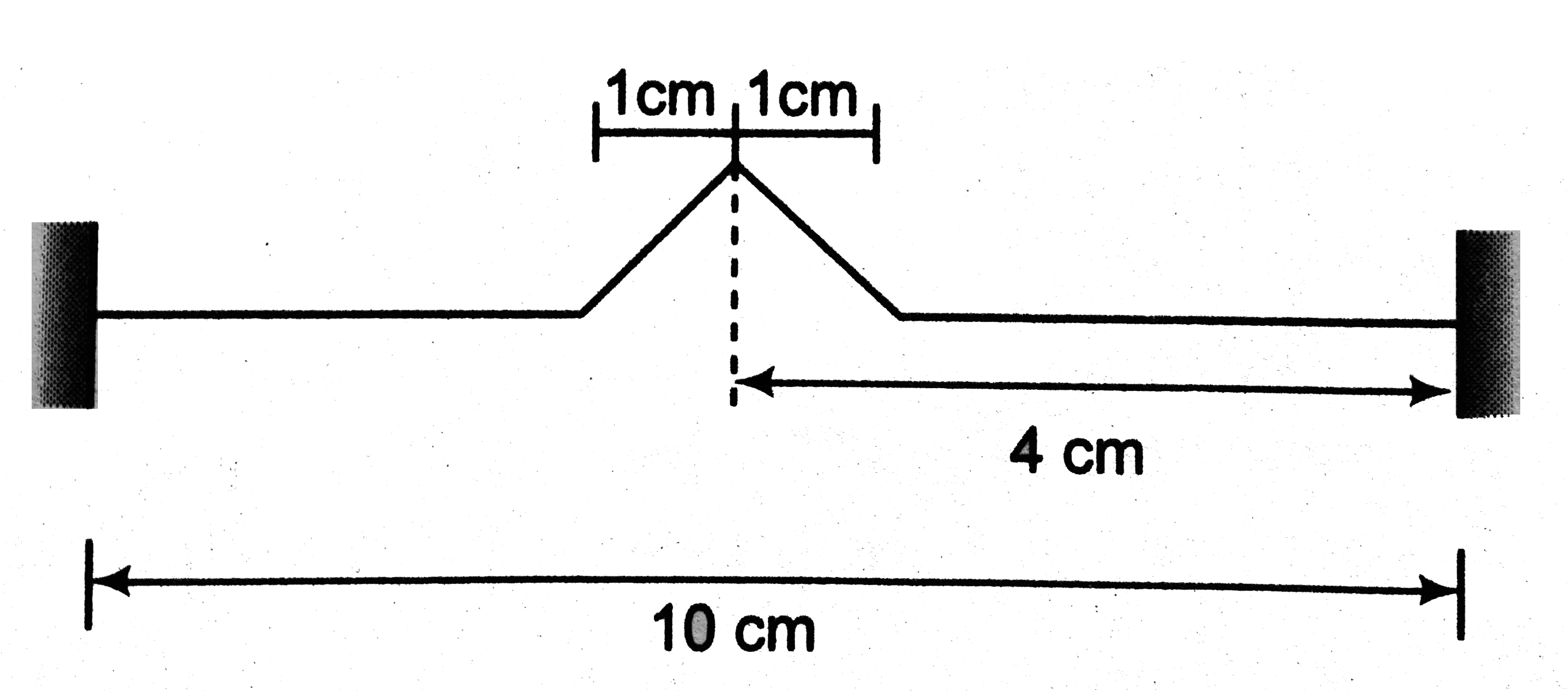 .
.
The correct Answer is:B, D
t1=d1v=4+41=8s.
After one reflection from fixed boundary wave is
inverted.
t2=d2v=4+10+161=20s
After two times reflection from fixed boundaries
wave pulse will again become upright.
Topper's Solved these Questions
- BOOK - DC PANDEY ENGLISHCHAPTER - SUPERPOSITION OF WAVESEXERCISE - Subjective Questions6videos
SUPERPOSITION OF WAVES
- BOOK - DC PANDEY ENGLISHCHAPTER - SUPERPOSITION OF WAVESEXERCISE - Level 2 Single Correct15videos
SUPERPOSITION OF WAVES
- BOOK - DC PANDEY ENGLISHCHAPTER - SUPERPOSITION OF WAVESEXERCISE - Objective Questions1videos
SUPERPOSITION OF WAVES
- BOOK - DC PANDEY ENGLISHCHAPTER - SOUND WAVESEXERCISE - Exercise 19.74videos
SOUND WAVES
- BOOK - DC PANDEY ENGLISHCHAPTER - THERMOMETRY THERMAL EXPANSION AND KINETIC THEORY OF GASESEXERCISE - Medical entrance gallary30videos
THERMOMETRY THERMAL EXPANSION AND KINETIC THEORY OF GASES
Similar Questions

When a wave pulse travelling in a string is reflected from rigid wall to which string is tied as shown in figure. For this situation two statements are given below.
(1) The reflected pulse will be in same orientation of incident pulse due to a phase change of π radians
(2) During reflection the wall exert a force on string in upward directon for the above given two statements choose the correct option given belowView SolutionThree point particles of masses 1.0 kg 2 kg and 3 kg are placed at three comers of a right angle triangle of sides 4.0 cm , 3.0 cm and 5.0 cm as shown in the figure . The centre of mass of the system is at point :
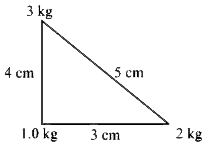 View Solution
View Solution
Knowledge Check
- Question 1 - Select One
Two pulses in a stretched string whose centres are initially 8 cm apart are moving towards each other as shown in the figure. The speed of each pulse is 2 cm/s. After 2 second, the total energy of the pulses will be
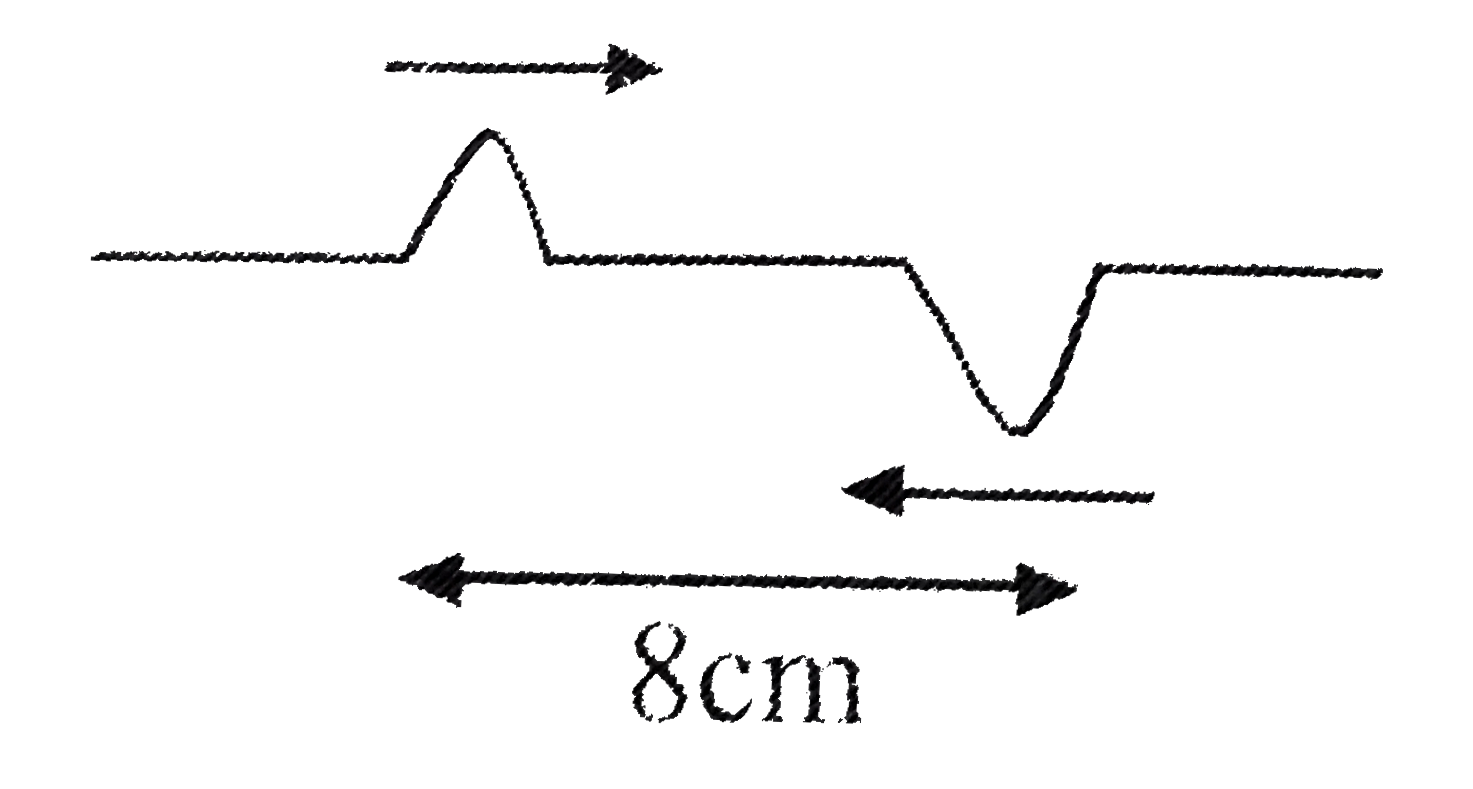 AzeroBpurely kineticCpurely potentialDpartly kinetic and partly potential
AzeroBpurely kineticCpurely potentialDpartly kinetic and partly potential
Three point particles of masses 1.0 kg 2 kg and 3 kg are placed at three comers of a right angle triangle of sides 4.0 cm , 3.0 cm and 5.0 cm as shown in the figure . The centre of mass of the system is at point :
 View Solution
View SolutionTwo pulses travel in mutually opposite directions in a string with a speed of 2.5cm/s as shown in the figure. Initially the pulses are 10cm apart. What will be the state of the string after two seconds?
View SolutionA string of length 20cm and linear mass density 0.40g/cm is fixed at both ends and is kept under a tension of 16N.A wave pulse is produced at t=0 nearj an end as shown in figure which travels towards the other end.
when will the string have the shape shown in the figure again? (∈×10−2s)
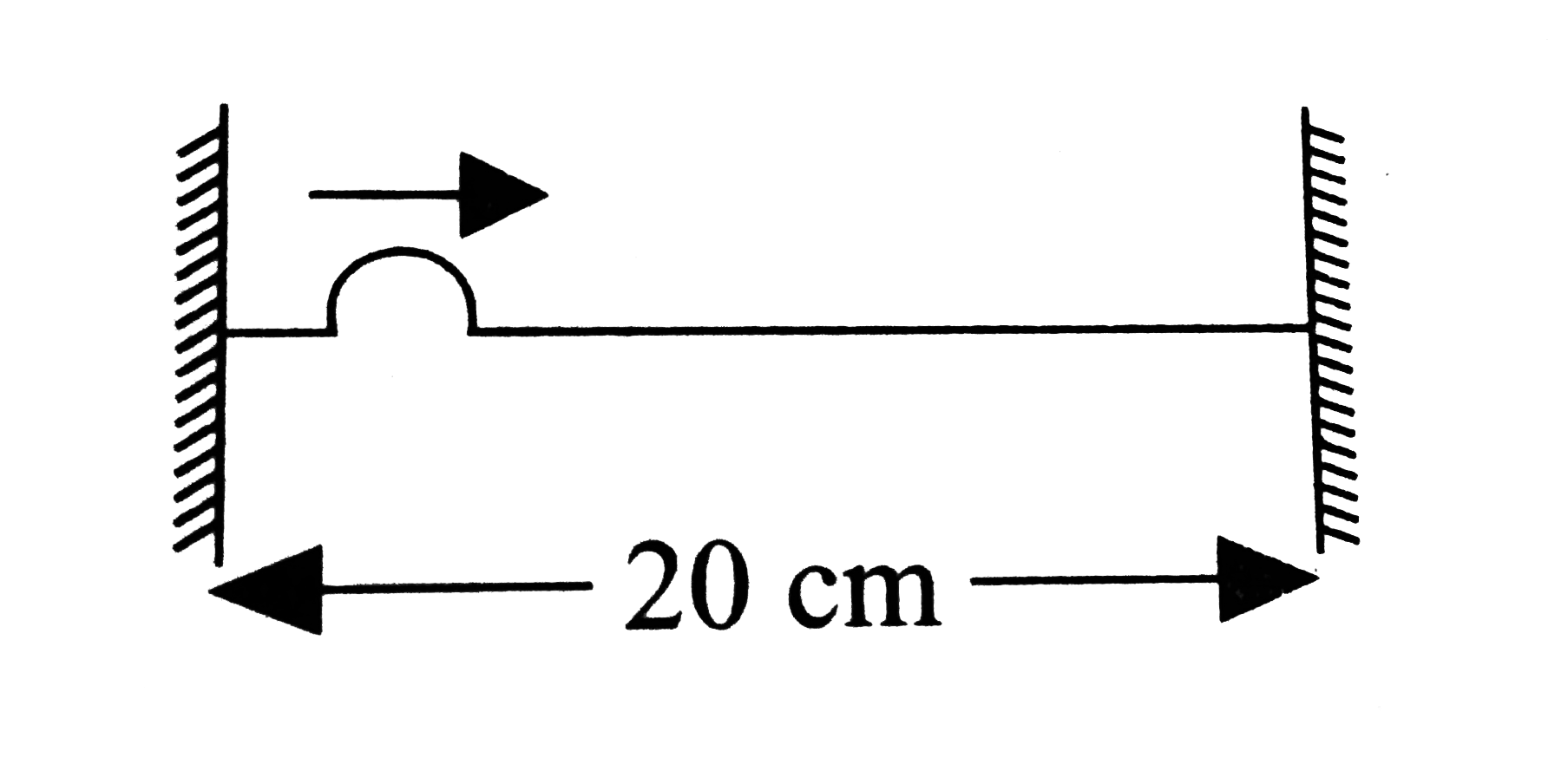 View Solution
View SolutionA wave pulse on a string on a string has the dimension shown in figure. The wave speed is v=1 cm /s . If point O is a free end. The shape of wave at time t = 3s si
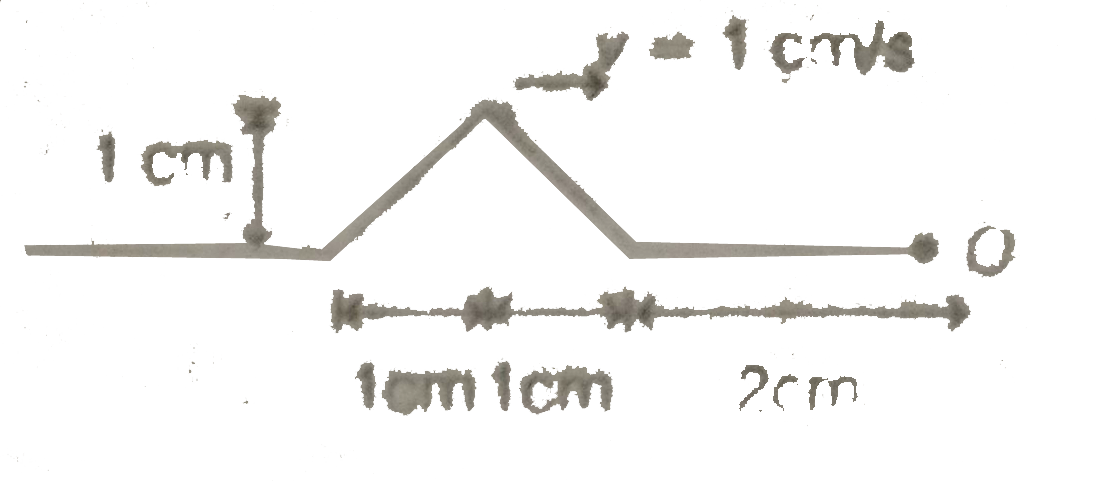 View Solution
View SolutionA string of length 20cm and linear mass density 0.40g/cm is fixed at both ends and is kept under a tension of 16N . A wave pulse is produced at t=0 near an ends as shown in Fig. 7.17 (b) , which travels towards the other end . When will the string have the shape shown in the Fig . ( c).
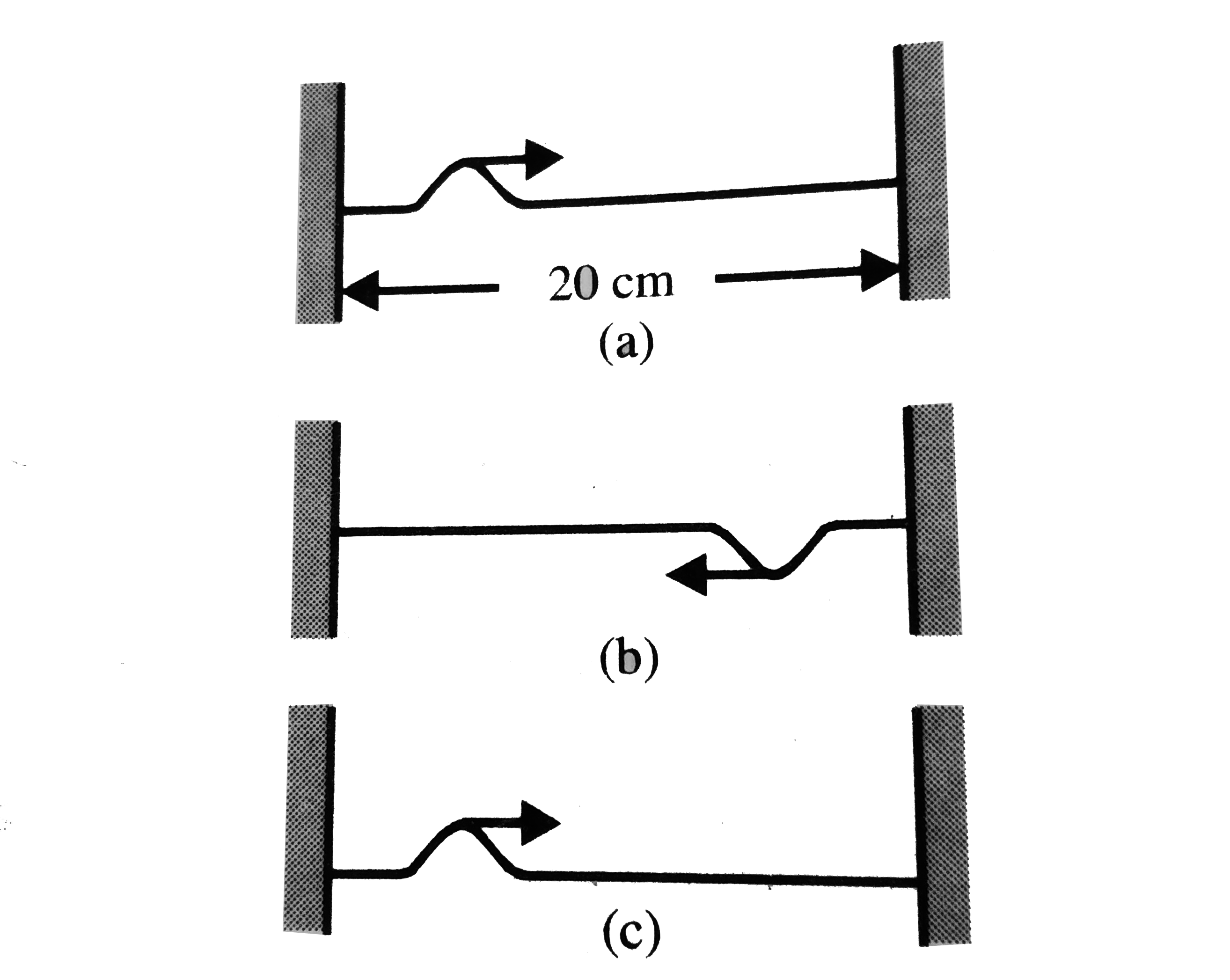 View Solution
View SolutionThe circuit in fig. consists of wires at the top and bottom and identical metal springs at the left and right sides.The wire at the bottom has a mass of 10.0g and is 5.00cm long. The wire is hanging as shown in the figure. The springes stretch 0.500 cm under the weight of the wire, and the circuit has a total resistance of 12.0Ω. When a magnetic field is turned on the springes stretch an additional 0.300 cm.
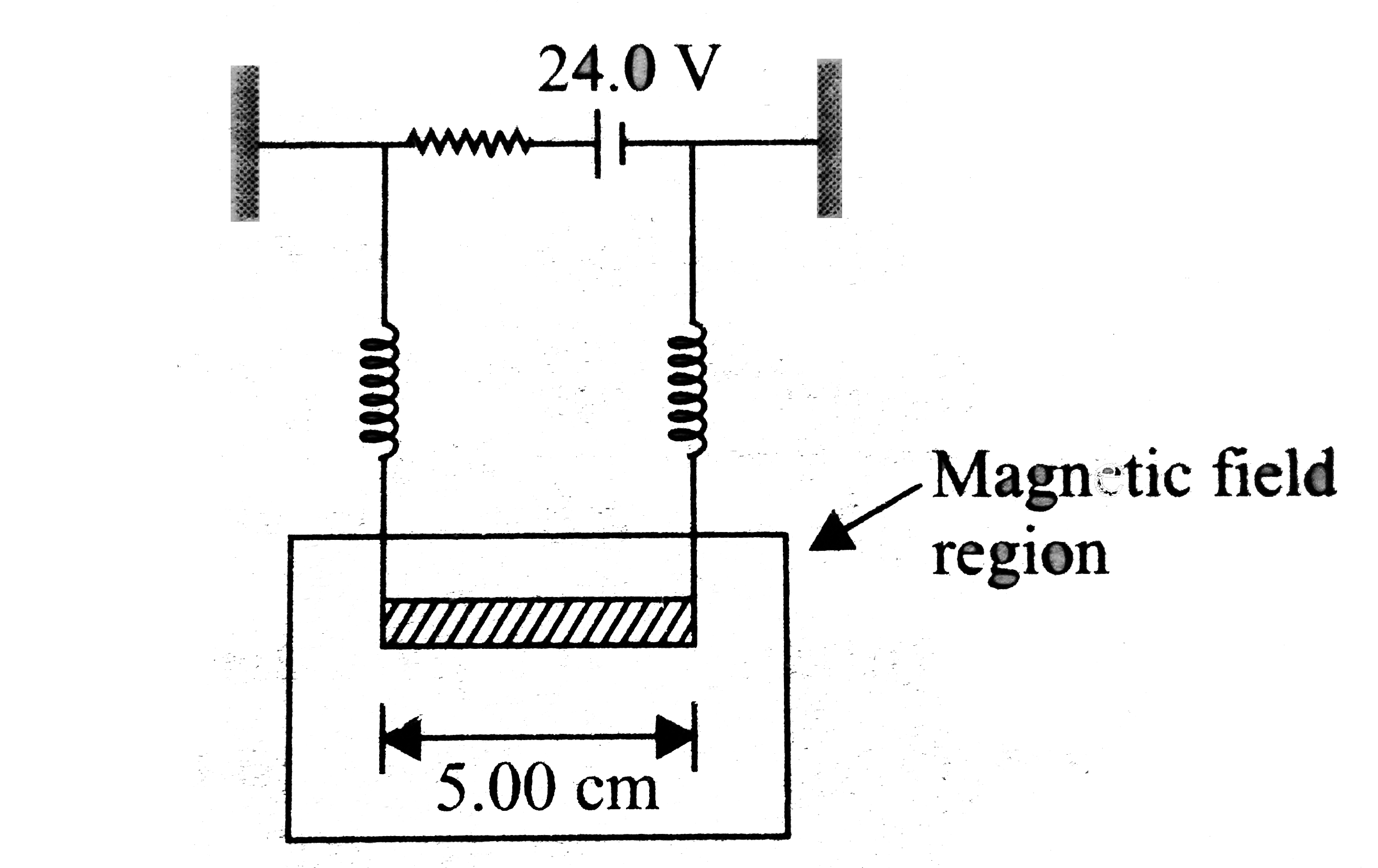
From the above statements we can conclude thatView SolutionA series of pulses, each of amplitude 0.150m, are sent on a string that is attached to a wall at one end. The pulses are reflected at the wall and travel back along the string without loss of amplitude. When two waves are present on the same string. The net displacement of a given point is the sum of the displacement of the individuals waves at the point. What is the net displacement at point on the spring where two pulses am crossing, (a) if the string is rigidly attached to the post? (b) if the end at which reflection occurs is free is slide up and down ?
View Solution

